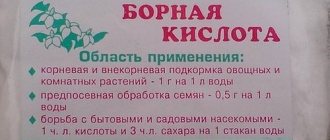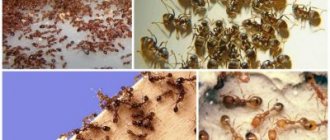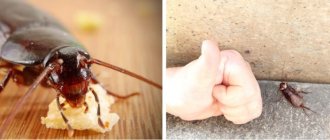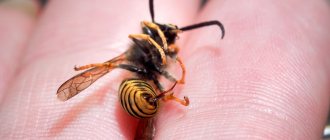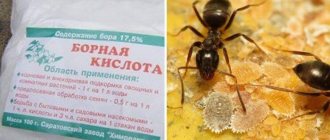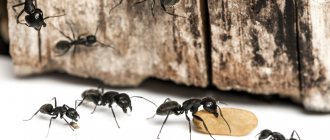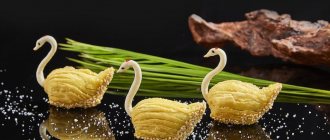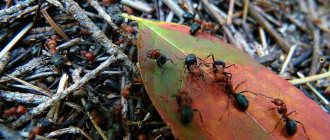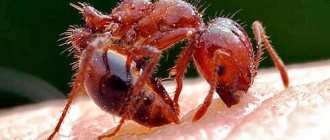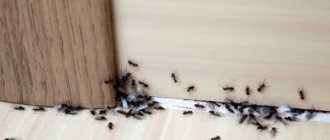Ants are amazing insects. If they have started somewhere, it is not easy to exterminate them or drive them out. They simply many insecticidal agents , adapt to others and still others turn out to be too harmful for the warm-blooded inhabitants of the house and garden.
One of the interesting folk remedies for fighting ants is ordinary yeast . We actively use them in cooking, but for insects they turned out to be a real nightmare, leading to a quick and rather painful death .
How can yeast be used to control insects, and is it dangerous to people and pets?
Operating principle
Let’s say right away that completely for people , and for most pets too. Direct poisoning of ants rarely occurs, since yeast can hardly be considered an integral part of their diet. The smell is bewitching for them pests will happily eat them right on the spot, as well as carry their prey en masse to the nest .
Over time, the yeast in the anthill will begin to ferment. This invariably leads to the fact that all other supplies become unusable . This leaves the ants with only two options :
- look for a new place of residence;
- clean the nest (they will not be able to do this);
- die of hunger.
The last scenario is the most likely. The fact is that they will have a surplus of other products and will quickly replenish their supplies. But insects are not smart enough to understand the harmful effects of yeast on food. As a result, the colony will certainly die out, albeit rather slowly.
Mechanical methods of fighting ants
It would seem that an excellent and safe solution would be to simply dig up and destroy the anthill with a shovel. But you should understand that the queen ant can be located at a depth of more than 1 meter. Therefore, it is much more effective not just to dig up the anthill, but also to additionally pour wood ash or ashes into the nests. You can also use vegetable oil (for example, sunflower) as a repellent ingredient. To increase the effect, you can add some strong-smelling plant to the oil, for example, cloves, anise, bay leaf.
How to use yeast against ants in an apartment
Ants are not always willing to attack yeast in its pure form . Their appetite largely depends on the area in which they live. It is noted that this remedy produces effect the central part of Russia , and slightly less in the north .
The southern regions cannot boast of the effectiveness of the method - the average temperature there is higher, the yeast spoils faster. Accordingly, ants are not always familiar with such a product. They will like the smell, but they will treat it with caution.
Yeast against ants can also be used in its pure form , but it will not be very attractive, and they will not develop a brutal appetite. The recipe is simple :
50-100 grams of yeast finely crumble into a bowl;- the same amount of sugar is mixed into them;
- the mixture is poured with warm water (in no case hot, otherwise the bait will quickly become unusable).
The mass is thoroughly mixed until it becomes a porridge. are molded from it , which are laid out near places where insects accumulate and pest routes.
Ants love sweets very much. Sugar mixed with wet yeast will give them a ravenous appetite . They will deliver treats to the nest in large quantities , constantly clogging their storage. The good news is that the implementation of this method does not require large financial and time expenditures .
The method is completely safe , yeast does not pollute the environment in any way. This product can be used both in a summer cottage and in an apartment. True, indoors the effect is still somewhat higher. The differences in the scale of the anthill are reflected - in nature they have several storage facilities at once.
Terms of use
The product is selected based on the type of insect. House ants can be:
- yellow;
- red;
- red.
Red parasites are most afraid of a mixture of sugar, boric acid, and borax. Simply mix the ingredients and sprinkle them over problem areas. Red insects enter the house through cracks. Therefore, you should smear the holes with lard. Yellow parasites do not tolerate a mixture consisting of:
- glycerin (10 grams);
- water (50 milliliters);
- sugar (50 grams);
- borax (5 grams);
- boric acid (5 grams).
The water is preheated to 60 degrees. Next, the remaining components are added. The mixture is placed in areas where parasites accumulate.
We also recommend that you read the article “Review of effective methods and means of combating house ants.”
Reviews
I didn’t want to poison my house with insecticides, so I decided to try the folk method of fighting ants. The choice fell on yeast because of its cheapness and safety. I don’t know whether the ants left or died out, but the result was positive - after a month there were no ants in my house. I prefer to attribute the rare corpses of insects to the fact that famine broke out in the anthill.
Mark, Moscow
I'm tired of the ants! They were everywhere, eating my food and even crawling on me sometimes. I didn’t want to spend money on expensive products, so I decided to try yeast. A good folk remedy, I tell you. Half the colony died out, the other half left. Everything took three weeks. Yeast does not provide prevention; I caught several insects two months after treating the apartment. Repeated use of the product helped. I recommend!
Inna, Totma
At the dacha, the ants did not leave, although they carried probably kilograms of yeast home. But everything was fine in the apartment - within a month the colony died out. There were a lot of corpses. I don’t know how yeast acts on their body, but for people this remedy is definitely harmless.
Dmitry, Volgograd
Bait preparation
Boric acid is dangerous only if ingested uncontrolled. And if for an adult the lethal concentration is 15-20 g of a crystalline substance, then for a child 4-5 g is enough. Therefore, if you decide to get rid of ants with boric acid, be sure to protect your children by completely eliminating the possibility of contact with a toxic substance. And if there are pets in the house, don’t forget to take care of them too.
Security measures
To properly prepare boric acid for ants without experiencing severe consequences, use four tips.
- Correct dosages. Do not increase the dosage of the drug used. An ant that has received a lot of poison simply will not have time to carry the poison to the nest.
- Working with gloves. Boric acid itself will not do anything to your hands. But the smallest particles can remain or get under the nails. And even after carefully washing your hands with soap, it is not always possible to completely get rid of them. Needless to say, how dangerous subsequent cooking can be?
- Disposable tableware . When creating poison for parasites, never use food utensils. Use disposable plates and spoons, which you immediately throw away after use.
- Laying out baits. If there are children or pets in the home, use extreme caution. Send the children to visit grandma, and give the pets to friends for a while. If this is not possible, then carefully consider the places where you can pour powder or spread bait.
4 tricks to make sure this method works
Having taken all safety measures and chosen the most suitable boric acid recipe for ants in the apartment, consider four more recommendations.
- Spring-cleaning . Clean the entire apartment thoroughly. Eliminate crumbs and clean hard-to-reach places. Even look under the baseboard. Wipe countertops and cabinet surfaces with vinegar. It not only cleans, but also disinfects surfaces.
- Product protection. Food should not be left on the table. Remove all products. If the ants find something to feed on, they will simply ignore the prepared baits.
- Access to water. Water lovers will definitely be looking for an opportunity to drink. Therefore, carefully place the bait directly in the sink, not forgetting to place paper under it.
- Efficiency of baits. Over time, the poisonous “treats” for ants lose their potency. Therefore, during the first week, replenish old reserves with new ones every two to three days.
How to protect fruit trees?
Ants perfectly loosen the soil, but they seriously damage the tree bark and proper protection must be provided. There are separate methods.
Adhesive and repellent belts
To prevent ants from climbing up the trunk, you should create a repellent belt. There are a lot of proposals:
- lime whitening;
- wrap the bottom of the barrel with tape;
- lubricate clotheslines with Vaseline;
- apply grease to the barrel;
- tie the trunk with foil, create a structure like a skirt;
- wrap polyethylene, coat it with tar, create a belt closer to the surface of the earth.
Water ditch and tires
To limit direct access to the trunk, you need to make a ditch and pour a cement composition into it. After hardening, add water.
For a similar purpose, you can use tires from car wheels: cut in the center so that two rings come out. Insert it upside down through the crown onto the circle around the trunk and pour water.
The second recommendation is convenient if the tree is massive and it is impossible to thread the ring through the crown.
Then the tire must be cut, inserted under the tree, and the cut edges secured with brackets.
To prevent ants from reaching the trunk, the rubber must be lubricated with oil, turpentine and other oily substances.
Destruction of ants with folk remedies
Many improvised means that are almost always available in everyday life are effective in combating ants in garden beds. Popular experience recommends using the following means:
Boron or powdered boric acid
It can be used to fill ant nests, but it is more effective when used as part of a sweet bait - ants love sweets. To prepare the bait, you need to mix boron with syrup, jam or sugar and water. Dosage – approximately 5 g per 100 ml of sweet base.
This poison is very effective, since the ants do not die from it immediately, but still have time to return to the anthill and feed the larvae and the queen there. The bait is laid out in a low dish next to ant nests or on their paths; it needs to be changed every 3-5 days. In about 2-3 weeks, the entire colony of insects will die out.
A mixture of crushed hot pepper and dry mustard
Sprinkle the mixture between the rows of plants in continuous strips 5 cm wide. Pepper and mustard not only repel insects with their smell, but also corrode their chitinous layer upon direct contact. This method is safe for plants and soil. If you only have pepper or mustard on your farm, it doesn’t matter, they are also effective individually.
Soda
You need to thoroughly fill the entire nest with soda powder, especially the entrance holes. Insects will die from contact with the powder. Soda will not harm the soil, on the contrary: if the soil is alkaline, soda will make it neutral or slightly acidic. Soda can also be used in a mixture with dry mustard.
Boiling water
You need to pour it directly into the nests, only carefully so as not to damage the nearby plants. This method is effective, but it is not suitable if the nest is located under the roots of a tree or shrub.
Fire and flammable mixtures
It is better to dig up the upper part of the nest to expose the internal passages. Pour a flammable mixture (gasoline, kerosene) into the passages and set it on fire. It is better to do this in the evening and at night, when all the ants are resting in their nest.
Burning out an ant nest is very effective, but this method can be used either in the spring, when the beds are not yet planted, or in the fall, when the harvest has already been harvested. In summer, instead of burning, you can use ash - tear up the upper part of the anthill and fill it with hot ash.
Vegetable oil
Water the anthill and the paths along which insects move with it. Once soiled with oil, insects are unable to cleanse themselves from it. The oil film prevents them from breathing, so they quickly die. And the smell of oil itself is also unpleasant for ants.
Urine
Some gardeners advise filling ant nests with urine. Judging by numerous reviews, the method works quite well. The ants probably cannot stand the smell and composition of urine.
Quicklime
It is poured into an ant's nest and filled with water. This method quickly kills insects, but it is dangerous to use near cultivated plants and trees - you can damage the roots. If the nest is not located in the garden bed, but somewhere near the plantings, then you can safely use lime.
Salt
Salt helps in the fight against ants, but it must be used very carefully and precisely. Salt remains in the soil for a long time, and its presence is extremely undesirable for plants. If you overdo it with salt, you can be left without a harvest for several years.
Yeast
Yeast can be poured into an anthill in dry form, but it is better to first pour it with a sweet solution (water and sugar). Gardeners justify the effectiveness of this method by the fact that yeast bacteria are quickly activated and spread to the food supplies of ants, which they store in underground burrows.
Ants collect mainly sweet organic matter in the garden, which yeast bacteria are very fond of. When the yeast begins to destroy the ants' reserves, they leave their nest in panic in search of a more suitable place.
Sulfur and oregano
Mix sulfur with dried oregano in a 1:2 ratio, fill the anthill and dig it up with soil. This good repellent will force the surviving ants to move far from the garden.
A mixture of kerosene and water
Water and kerosene are mixed 1:1, the composition is poured into the nests. Before this, it is better to stir up the anthill so that the solution gets into the internal chambers with the larvae and the queen.
A mixture of water, vinegar, shampoo and vegetable oil
This method is more suitable for getting rid of insect nests outside the beds. Take 10 liters of water into a bucket, pour in a bottle of vinegar, 2 cups of vegetable oil and a bottle of any cheap shampoo. Mix everything well and pour into the ant holes. At the site of the intended nest, it is better to make deep holes with a peg and carefully pour the solution into them. After this, cover the treated area with film for 3 days - the insects will die out.
What to do if bitten by an ant?
If you are bitten by an ant, the sensation is unpleasant and that is why it is so important to know what to do in this case. As a rule, there is slight redness at the site of the bite and itching, swelling goes away after a few hours on its own. But it’s much worse if you are allergic to an ant bite:
But it’s much worse if you are allergic to an ant bite:
- Swelling at the site of the bite and a blister pops up, causing an unpleasant itch.
- Extensive redness of the dermis and increased pain develop.
- I am worried about nausea and attacks of dizziness and fainting.
In this case, you should immediately take a number of measures:
- Treat the bite site with alcohol or vodka.
- To relieve itching, apply a paste of baking soda diluted with water to the bite site.
- To relieve redness and increased body temperature at the site of the bite, apply a fresh slice of potato.
- You should definitely take an antihistamine and then go to the hospital.
Good to know! To successfully fight ants in your own garden or on a personal plot or flower bed, it is important to first eliminate the cause of the appearance of insects, and only then drive them away. Not only timely prevention and effective methods and means will help with this, but also our advice
DIY ant trap
Today there are a huge number of ant traps that you can make with your own hands. They will be very good at fighting if you know in advance all the paths and moves of these insects. In most cases, they choose the same route.
1. Prepare the room:
- Remove and pack all available products;
- It is good to wash all floors, and especially dark corners and crevices that are difficult for humans to reach;
- Waste must be immediately disposed of in general waste bins;
- The kitchen must be treated with a low-concentrated solution.
2. Processing surrounding objects using improvised means
- Ammonia or Ammonia. With a 10 percent solution, which can be found in any pharmacy, wipe all known insect paths. But ammonia is a very toxic substance, so it is necessary to ventilate the premises after using this method.
- Soda. If you repeatedly rub and then wash off thickly mixed soda, like a paste, then unfriendly guests will leave soon. The main thing is not to forget that this procedure must be repeated several times.
- A mixture of vinegar and lemon. When mixing, the main thing is to correctly determine the amount of substance to be mixed. With this solution, as in the first case, it is necessary to lubricate all possible and probable paths and roads of ants.
- Red pepper. Sprinkle the powder in places where insects appear most often. Ants have receptors that are unable to perceive spicy foods. Sensing something is wrong, they will leave their habitat.
DIY ant traps
Options for making an ant trap:
- Use tape. To do this, take a small saucer or lid and put tasty bait in the center. Cover the edges of the container with double-sided tape.
- Container with liquid. A regular glass jar will do for this. Pour water and sugar into it almost to the top and place it in places where pests are most concentrated. Once in the jar, the ants will simply drown.
- Boric acid. It must be mixed with mashed potatoes and spread indoors. After eating such a delicacy, the ants die themselves and infect other individuals.
- Vegetable oil. Coat the inside of a glass jar with oil and place a sweet treat for insects inside. Place a small twig near the container itself so that the ants can climb onto it. They will be able to crawl back out.
It is important to understand that any DIY ant trap will have a shorter service life than its store-bought counterparts. Therefore, they will have to be changed somewhat more often.
If time permits, then you can easily build an ambush with your own hands:
- Place a packet of boric acid mixed with sweet syrup into plastic lids.
- Place poisoned baits under the table, near cracks in the floor, ventilation shafts, in the pantry and other places where pests are encountered.
Trying the sweetness, worker ants infect their relatives and die themselves. All you have to do is periodically check the “ant ambush” and add poison. Uninvited residents are also repelled by the smell of mint, shag, bay leaves, wormwood, cloves and garlic. Sprinkle or lubricate strong-smelling ingredients where they accumulate.
More than once, homemade devices have proven effective and inexpensive. But if there is a child or some kind of living creature in the house (a cat, for example, or a turtle), then it is better to give preference to a purchased trap without poison.
You can build a device for fighting domestic ants with your own hands:
- Mix a bag of boric acid and a little sweet syrup, jam or honey;
- Place bait in lids or shallow plastic boxes;
- Place traps under tables, near baseboards, trash cans, closets, and other insect habitats.
Other options for homemade traps:
- Using double-sided tape. Place a little jam or honey in a plastic lid (small saucer). Cover the edges of the container with double-sided tape;
- Sweet liquid. Fill a glass jar almost to the top with water and sugar syrup and place it in places where ants accumulate. Once in the jar, the insects will simply drown;
- Vegetable oil. Coat the inside of the jar with sunflower oil and put sweet bait on the bottom. Place a stick or twig on the container so that pests can climb onto it. The ants will not be able to get out of the jar.
With the help of traps you can get rid of small pests in a week. Correct use of devices, as well as regular replacement of bait, will help to achieve maximum results.
Preventive actions
The main rule of prevention is cleanliness in the house. Take out the trash, do not leave pet food in the bowl for a long time, and remove crumbs from the table and floor. Store sugar and cereals in glass jars or plastic containers that are tightly closed. Insects will not settle where there is nothing for them to eat. Once a month, wet clean the floor with ammonia added to the water; its smell will repel ants.
There are several ways to repel ants: The smell of garlic, lubricate the paths with a clove of garlic. The smell of lemon, parsley, mint, anise, cloves, bay leaf and tobacco will also scare them away. Soap solution - dilute water with soap, add anise or mint oil. This solution will destroy the paths and drive away the ants. If nothing works or you are too lazy to do it yourself, call a pest control service. Take your choice seriously, the effectiveness of this event depends on it. And remember, a good company will always guarantee free re-processing.
Conclusions from Tikhon: Ants in an apartment are not a death sentence, but a temporary inconvenience. You need to approach the problem individually in each case; all the means and methods described above will help in exterminating insects. And remember it is always easier to prevent than to fight.
Happiness to you and your home.
Prevention
To protect your garden and home from ants, it is necessary to carry out prevention methods. Necessary:
- remove uneaten food;
- spread garlic and parsley, their smell repels pests;
- put mint;
- dig up the area so that the birds can eat the ants;
- Sprinkle wood ash as fertilizer.
The main thing is to keep cleanliness, both in the house and outside. Then you can avoid the appearance of unwanted guests. When these insects appear, it is important to clean and treat surfaces. However, do this regularly, as the ants may return.
Causes and consequences of ants appearing on strawberries
Establishing the reasons for their appearance in the beds will help save strawberries from ants. This garden crop by itself is not capable of attracting ants, but they will not refuse to feast on it. Probably, insects already lived in the places chosen for the strawberry plantation. It is known that in the course of their life, ants significantly improve the quality of the soil:
- loosen, ensuring a flow of oxygen to the roots;
- increase the concentration of microelements (potassium, manganese, phosphorus), thereby increasing productivity many times over;
- stimulate the growth of beneficial microorganisms;
- destroy eggs, larvae and mature individuals of harmful insects.
It is not surprising that after some time the gardener chooses this area for strawberry beds. And ants act indiscriminately. They begin to eat ripening berries and spoil the thin roots of plants. They bring entire colonies of aphids to the soil surface, which serve as a source of food for them. Soon, brown spots form on the dark green leaves, and putrefactive processes develop on the roots. This is how aphids become involved in damaging garden crops.
